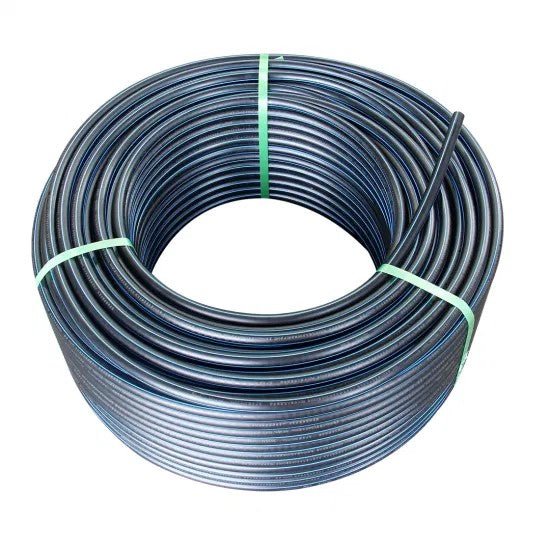The Role of Pipe Manufacturing Midland TX in Building Infrastructure
Wiki Article
Recognizing the Key Benefits of HDPE Pipe for Water and Wastewater Management
The use of HDPE pipeline in water and wastewater monitoring provides numerous benefits that warrant factor to consider. Its outstanding longevity and lengthy life expectancy make it a favored option for lots of jobs. Furthermore, the material's resistance to corrosion and chemical damages improves its reliability in various settings. The benefits expand past just longevity and resistance. custom hdpe pipe manufacturing Midland TX. Exploring its cost-effectiveness and environmental effect discloses much more compelling factors for its extensive fostering in contemporary infrastructureExtraordinary Sturdiness and Durability

HDPE pipe attracts attention for its extraordinary durability and durability, making it a favored selection in water management systems. Constructed from high-density polyethylene, these pipes can hold up against significant stress and tension, making certain dependable performance gradually. Their durable nature permits them to endure severe ecological problems, consisting of temperature level fluctuations and soil motions, which can create various other products to fall short.
The lifespan of HDPE pipes commonly goes beyond 50 years, supplying a cost-effective service for communities and markets alike. Furthermore, the product's light-weight buildings streamline installment, lowering labor prices and durations. This resilience lessens the requirement for constant repair work or substitutes, even more boosting its financial charm.
In water administration applications, the reliability of HDPE pipelines implies fewer disruptions and enhanced solution continuity, making them essential to sustainable facilities advancement. The mix of toughness and durability solidifies HDPE's duty as a keystone in reliable water administration solutions.

Resistance to Corrosion and Chemical Damages
While many products catch deterioration and chemical damages over time, HDPE pipes show exceptional resistance, making them perfect for different water management applications. This resilience comes from the molecular framework of high-density polyethylene, which is inherently non-reactive and does not rust like steels or deteriorate from direct exposure to severe chemicals. As an outcome, HDPE is highly efficient in environments with aggressive compounds, such as wastewater systems that might include acids, bases, and organic solvents.
Furthermore, HDPE pipelines can endure ecological factors such as soil level of acidity and saline problems, further improving their viability for varied applications (Texas hdpe pipe manufacturer). Their capability to preserve architectural integrity gradually reduces the risk of leaks and failures, which is vital in ensuring the safety and integrity of water circulation and wastewater monitoring systems. The resistance to corrosion and chemical damage considerably contributes to the general effectiveness and longevity of HDPE piping solutions.
Cost-Effectiveness and Economic Advantages
When taking into consideration the monetary ramifications of water administration systems, the cost-effectiveness of HDPE pipes ends up being apparent. These pipes use lower installation and upkeep expenses compared to traditional products like metal or concrete. Their light-weight nature simplifies transport and setup, resulting in lowered labor expenditures. Furthermore, HDPE pipelines display a long life-span, often going beyond 50 years, which converts to fewer substitutes and long-lasting Web Site savings.Furthermore, the resistance of HDPE to rust and chemical damage decreases the requirement for expensive repair work and replacements. The pipelines also support reliable water flow, lowering energy prices related to pumping systems. By minimizing leaks and water loss, HDPE pipelines add to significant financial benefits for communities and industries alike. Generally, the first investment in HDPE piping can generate substantial monetary returns over the lifespan of the water monitoring system, making it a prudent option for lasting infrastructure advancement.
Ecological Sustainability and Reduced Influence

Convenience and Flexibility in Installation
Because of their unique residential properties, HDPE pipes provide impressive More about the author convenience and adaptability in setup, making them suitable for a large range of applications. Their light-weight nature permits simpler handling and transport, lowering labor expenses and installment time. HDPE pipelines can be curved and formed to fit different surfaces and project needs, which is especially advantageous in testing atmospheres.Furthermore, their resistance to deterioration and chemical damages permits installation in varied settings without the requirement for specialized protective coverings. The capability to fuse joints produces a continual, leak-free system, enhancing the general integrity and dependability of the installment. HDPE's adaptability additionally accommodates ground movement, reducing the risk of damage in locations susceptible to moving dirt. Overall, these features make HDPE pipes not only flexible yet also a preferred option for water and wastewater administration systems.
Regularly Asked Questions
Exactly How Does HDPE Pipeline Compare to PVC in Water Management Applications?
HDPE pipe supplies premium flexibility, resistance to rust, and durability compared to PVC. Its lighter weight assists in less complicated installation, while its long life expectancy minimizes substitute prices, making HDPE a preferred choice in water administration applications.What Is the Life-span of HDPE Pipes Under Common Problems?
Under normal problems, HDPE pipelines can have a life-span varying from 50 to 100 years. Their durability and resistance to rust add to their long-lasting efficiency in different applications, making them a reputable option for infrastructure.Are HDPE Pipeline Recyclable After Their Life Span?
Yes, HDPE pipes are recyclable after their life span. Pipe Manufacturing Midland TX. They can be refined and repurposed right into brand-new products, greatly decreasing environmental impact and promoting sustainability within the sector, making them an eco-friendly selection for piping optionsWhat Is the Setup Process for HDPE Piping?
The setup process for HDPE pipelines involves website preparation, trenching, pipe combination or mechanical signing up with, backfilling, and pressure testing. Correct methods ensure a durable and reliable system for delivering water and wastewater successfully.Can HDPE Pipes Be Made Use Of for Both Potable and Non-Potable Water Equipments?
Yes, HDPE pipes can be made use of for both potable and non-potable water supply. Their versatility, sturdiness, and resistance to corrosion make them appropriate for numerous applications, guaranteeing secure and efficient transport of water in various contexts.Report this wiki page